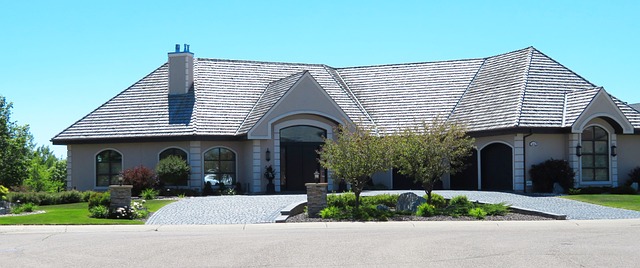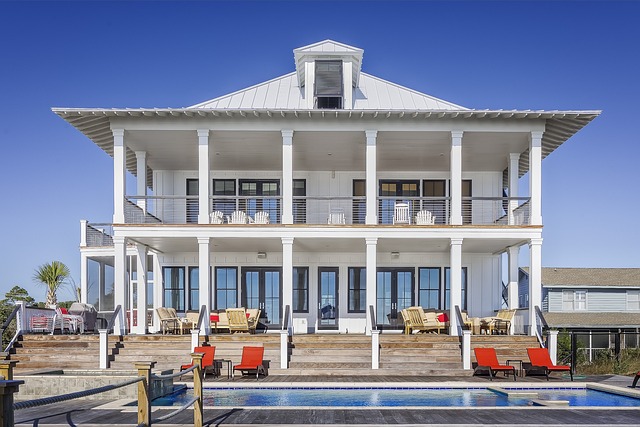Executive Condominiums (ECs) in Singapore serve as a middle-ground housing option for individuals and families, offering a blend of public and private living amenities. These ECs are particularly favored by upgraders and young families due to their enhanced facilities, additional space, and strategic locations near essential amenities and transport hubs. Prospective tenants must consider eligibility criteria, the minimum occupancy period for previous owners, and their financial status when looking to rent an EC, which is accessible to Singapore citizens and permanent residents under specific conditions. Renting an EC requires adherence to government regulations and guidelines, including income-based rental caps as per the CPF Board and compliance with legal frameworks like the Building Maintenance & Strata Management Act (BMSMA) and HDB regulations. The rental market for ECs is dynamic, influenced by economic conditions, housing supply, and cooling measures imposed by the government. Both tenants and landlords must navigate this competitive landscape carefully, considering factors such as location, development age, and lease terms to secure a suitable unit and achieve optimal rental returns while maintaining a high-quality living experience. Staying informed about market trends and legal requirements is crucial for a successful rental experience in Singapore's EC market.
Exploring the nuances of Singapore’s housing market, this article sheds light on the dynamic Executive Condominium (EC) rental landscape. A significant segment of real estate in the Lion City, ECs blend the benefits of public and private housing, making them a popular choice for both ownership and renting. We delve into the types of available ECs in Singapore, examining their unique features and the factors that influence rental prices. Navigating the process of securing an EC rental is simplified with our step-by-step guide, while important legal considerations and eligibility criteria are clarified for both tenants and landlords. Strategies to maximize rental experiences for all parties are also discussed, ensuring readers are well-equipped with knowledge tailored for the Singapore EC rental market.
- Understanding the EC (Executive Condominium) Rental Landscape in Singapore
- Types of ECs Available in Singapore: A Comprehensive Guide
- Factors Influencing EC Rental Prices in Singapore
- The Process of Renting an EC in Singapore: Step-by-Step
- Legal Considerations and Eligibility for Renting an EC in Singapore
- Strategies for Tenants and Landlords in the Singapore EC Rental Market
Understanding the EC (Executive Condominium) Rental Landscape in Singapore

In Singapore, the Executive Condominium (EC) rental market presents a unique segment within the broader housing landscape. Prospective tenants interested in available ECs in Singapore will find a diverse range of options that cater to varying needs and budgets. These properties offer a middle ground between public housing and private condominiums, making them an attractive choice for upgraders and young families. The rental landscape for ECs is influenced by factors such as location, unit size, age of the development, and available amenities. Unlike traditional HDB flats, ECs come with enhanced facilities and more space, often including features like swimming pools, gyms, and playgrounds. This makes them a popular alternative to private condominiums without the high price tag associated with the latter.
The rental market for ECs is dynamic, with prices and demand fluctuating based on economic conditions, government policies, and the availability of new units. Tenants seeking available ECs in Singapore should consider factors such as proximity to MRT stations, schools, and commercial hubs, as these can significantly affect both rental rates and the desirability of the property. Additionally, with ongoing developments and the introduction of new EC projects like Canberra Residences and Parc Canberra, the market is continuously evolving. Prospective tenants should keep abreast of the latest trends and offerings to make informed decisions. Understanding this ever-changing landscape requires a keen eye on market movements and a strategic approach to securing an EC that meets one’s lifestyle needs and financial considerations.
Types of ECs Available in Singapore: A Comprehensive Guide

In Singapore, Executive Condominiums (ECs) offer a middle-ground housing option for couples and families looking to transition from public to private housing, or for those seeking a spacious and premium living environment. These ECs are hybrid housing models that start off with certain public housing benefits before transitioning fully into the private property market after a set period. They come equipped with a myriad of facilities, and are designed to cater to various lifestyles and preferences. Prospective residents have a range of options when it comes to available ECs in Singapore, with new projects frequently launched to meet the growing demand for quality living spaces.
The types of ECs available in Singapore can be categorized based on their location, size, and the level of completion. Some are situated in mature estates, offering residents the convenience of amenities and transport links, while others are located in newer towns with a forward-looking appeal. In terms of size, these condominiums vary from compact units ideal for small families to larger, more expansive options suitable for multi-generational living. As for completion level, some ECs are built in phases, allowing homeowners to move into their new homes as different sections become available, while others are completed and ready for immediate occupation. With each project offering unique features and benefits, potential buyers should research the various available ECs in Singapore to find one that aligns with their lifestyle needs and financial planning.
Factors Influencing EC Rental Prices in Singapore

The rental prices for Executive Condominiums (ECs) in Singapore are influenced by a confluence of factors that reflect both market dynamics and government policies. Location is a primary determinant, with ECs situated in mature estates or near city fringes typically commanding higher rents due to their accessibility and proximity to amenities such as shopping centers, schools, and MRT stations. The age of the development also plays a role; newer ECs may attract premium pricing due to their modern facilities and finishes, while older units might be priced more competitively to appeal to renters looking for value.
The balance between public and private housing elements in ECs, which allow them to be resold in the open market after a minimum occupation period, also affects rental prices. This hybrid nature makes ECs a versatile choice for both upgraders and investors, influencing demand and, consequently, rental rates. Market sentiment and economic conditions are additional factors; during periods of economic growth or when there is a shortage of housing supply, rental prices for available ECs in Singapore tend to rise. Conversely, during economic downturns or when the market is oversupplied with units, prices may adjust downwards to attract tenants. The government’s cooling measures and interest rate adjustments also have a bearing on the EC rental market, as they can impact buyers’ and investors’ confidence and investment in such properties.
The Process of Renting an EC in Singapore: Step-by-Step

In Singapore, the Executive Condominium (EC) rental market presents a unique blend of public and private housing options for those seeking a middle-tier residential living experience. Prospective tenants interested in renting an EC must follow a systematic process to secure their desired property. The journey commences with identifying an available EC within Singapore’s vast array of units, many of which are strategically located near amenities and transport nodes. It is advisable to engage real estate services or consult the Housing & Development Board (HDB) resale portal for listings that cater to this preference. Once a suitable EC is found, potential renters must verify its eligibility; only Singapore citizens and permanent residents are allowed to live in an EC, with certain exceptions for marriages and other specific conditions.
Upon finding an eligible EC, the next step involves checking the minimum occupancy period (MOP) for previous EC owners, which is typically three years before it can be sold or rented on the open market. Prospective tenants should then proceed to check the eligibility criteria for public rental housing schemes if they are considering options under such programs. The application process involves submitting necessary documents and meeting financial criteria. Prospective tenants must also be aware of the rental guidelines set forth by the CPF Board, which stipulate that rent payments cannot exceed a certain percentage of the lessee’s monthly income. After securing the lease agreement, renters can proceed with the application for utilities and services connection, ensuring a smooth transition into their new EC home in Singapore. Throughout this process, staying well-informed about the latest regulations and market trends is crucial for a successful rental experience.
Legal Considerations and Eligibility for Renting an EC in Singapore

In Singapore, the rental market for Executive Condominiums (ECs) presents a unique segment for potential renters. Prospective tenants must first ascertain their eligibility to rent an EC, as defined by the Housing & Development Board (HDB). This eligibility extends beyond mere financial criteria; it also encompasses the type of housing applicants are currently living in and their occupier status. Notably, foreigners are eligible to apply for an EC only if they meet stringent conditions set forth by the Singaporean government, including a requirement to reside in the EC for a stipulated period. This is to ensure compliance with the strategic housing distribution policies aimed at supporting the diverse demographic needs of the population.
Legal considerations are paramount when entering into an EC rental agreement in Singapore. The legal framework governing ECs is robust, designed to protect both the rights of landlords and the interests of tenants. Prospective renters must familiarize themselves with the terms and conditions set forth in the Building Maintenance & Strata Management Act (BMSMA), as well as the regulations under the Housing & Development Board. These legal instruments cover aspects ranging from lease duration to maintenance responsibilities, security deposits, and any alterations that may be permissible within the unit. Understanding these legalities is crucial for a smooth rental experience, ensuring that the agreement is legally binding and enforceable. For those interested in exploring the available ECs in Singapore, it is advisable to consult with property experts or legal professionals well-versed in this niche market to navigate the process effectively.
Strategies for Tenants and Landlords in the Singapore EC Rental Market

navigating the Executive Condominium (EC) rental market in Singapore requires strategic approaches from both tenants and landlords. For renters, it’s crucial to assess the availability of ECs in Singapore, as these properties offer a middle ground between public and private housing, catering to families with their features such as facilities and space. Tenants should consider factors like location, the age of the development, and the lease term remaining, which can influence rental prices and living conditions. It’s advisable for potential tenants to engage with property listings promptly, as ECs are popular and can be competitive in terms of securing a desirable unit. Additionally, understanding the Matrimonial Proceedings (Monetary Claims) Act and its implications on rental agreements is beneficial for ensuring a smooth tenancy.
Landlords, on the other hand, should be well-versed in the market trends to set competitive rents that align with the going rates for similar EC units. They must also adhere to the minimum occupancy period stipulated by HDB before they can sell the EC unit. Landlords need to maintain the property to keep it attractive to potential renters, which includes regular upkeep and addressing any issues swiftly. Moreover, they should be transparent with tenants about the terms of the lease, including any rules or regulations specific to the EC development. By employing these strategies, landlords can maximize their rental yield while providing a stable and pleasant living environment for tenants. Both parties benefit from staying informed about the changing landscape of the EC rental market in Singapore, ensuring transactions are conducted smoothly and fairly.



